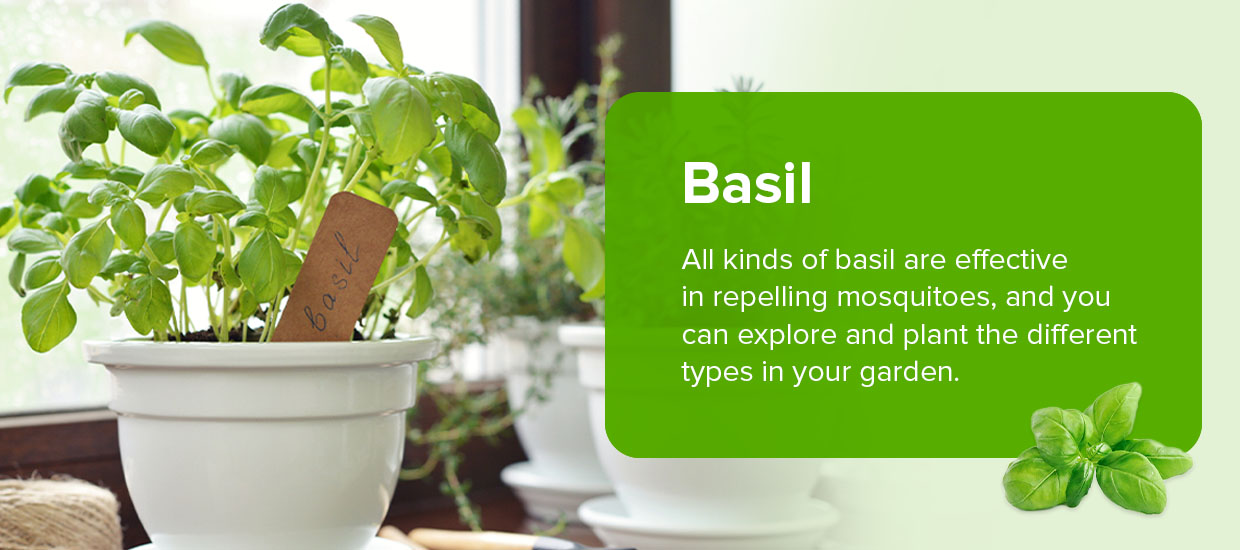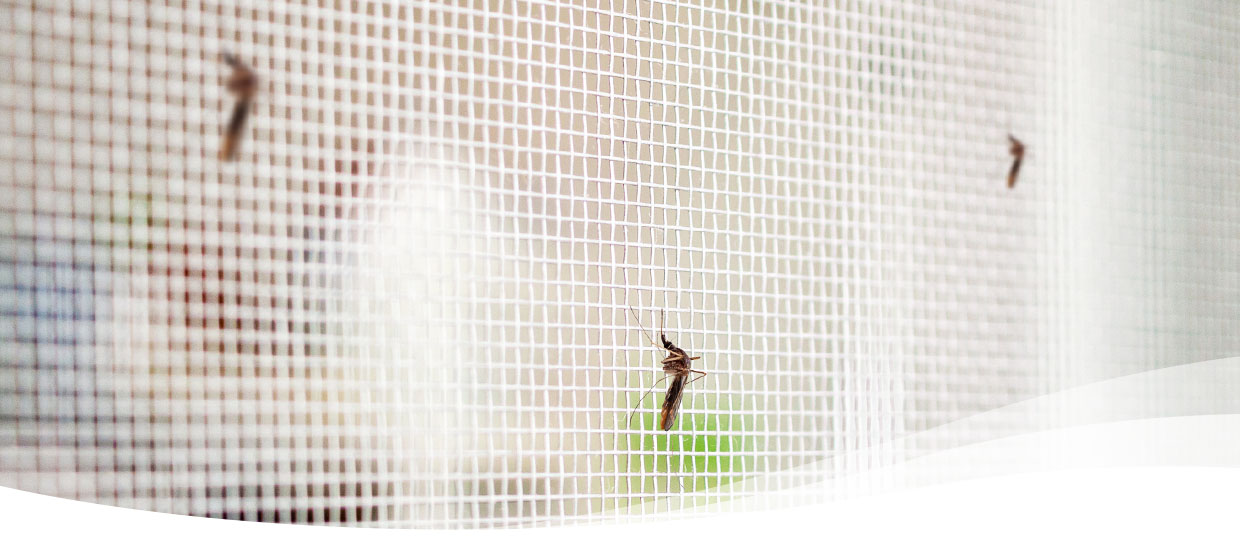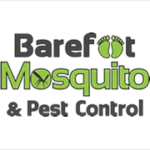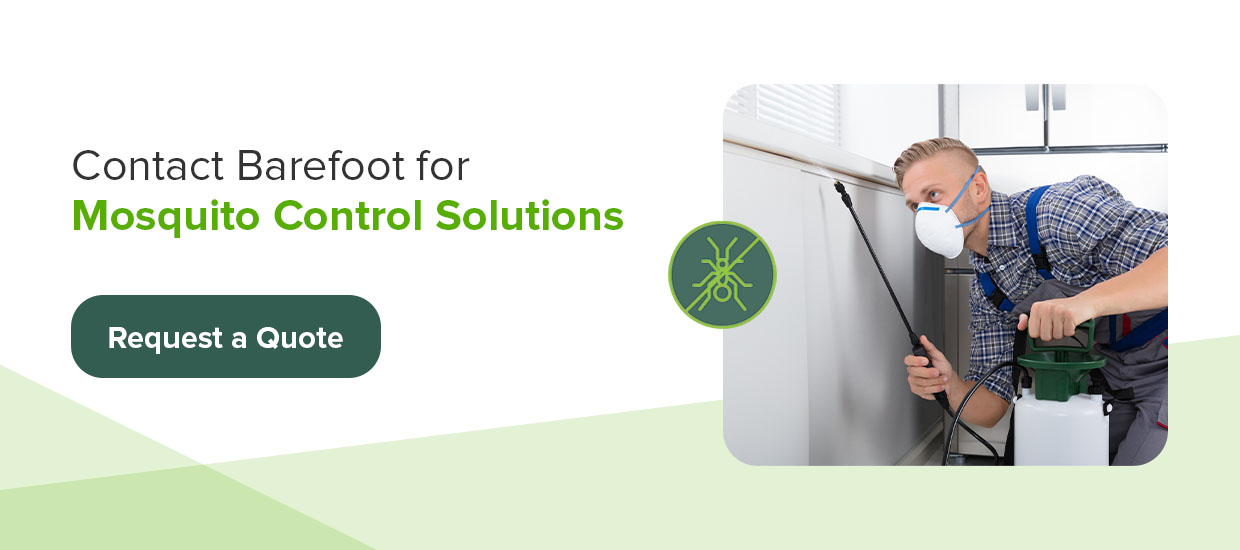Mosquitos are a nuisance and pose serious health risks. They carry pathogens that cause diseases such as dengue, malaria, yellow fever, West Nile, Zika and chikungunya. You can use mosquito control strategies to protect your family from these disease-carrying insects.
Eliminate Breeding Grounds
One of the most effective ways to control mosquitos around your home is to prevent them from breeding. Mosquitos prefer stagnant water for laying their eggs. Any standing water in or outside your home provides the perfect habitat for these insects to start life. Eliminating mosquito breeding grounds begins by ensuring that you have no standing water on your property.
Mosquitos go through four main stages in their life cycle — egg, pupa, larva and adult. They cannot complete this cycle without water. Controlling them in their immature stages, like pupa and larva, before they become adults will maximize your efforts of eradicating the pests in your home or community. Egg and larva interventions are some of the most effective and least costly ways to control mosquitos.
Mosquitos also prefer hot and humid environments, which is why you mostly experience mosquito problems during the hot seasons. A combination of the hot temperatures and standing water is enough for mosquitos to breed. Common breeding grounds for mosquitos include:
- Puddles
- Long grass
- Flower pots
- Untended yards
- Rainwater barrels
- Heavily shaded areas
- Clogged gutters and drains
- Debris or empty tires in the yard
You need to ensure each of these breeding grounds is free of standing water. For example, frequently drain flower pot plates of standing water. Check and empty trapped water in discarded toys, plastic wrappers and beverage containers. If you have a swimming pool, ensure the water is moving — mosquitos need still water to breed.
Use Natural Repellants
Some natural mosquito repellents are also effective in keeping mosquitos away from your home.
Lemon Eucalyptus Oil
Eucalyptus oil is a widely used natural repellent for mosquitos. The Centers for Disease Control and Prevention (CDC) has approved it for home use.
The CDC approval also means the oil is one of the repellants registered with the Environmental Protection Agency (EPA), making it a safe choice even for pregnant and breastfeeding people. However, the CDC does not recommend using pure lemon eucalyptus oil as a repellant because the oil has not been tested for efficacy and safety and is not registered with the EPA. Pure lemon eucalyptus oil is an essential oil that is not formulated.
Lavender
Crushed lavender produces oil and a fragrance that can repel mosquitos. In addition, lavender has antifungal, antiseptic and analgesic qualities. These characteristics mean you can use lavender to repel mosquitos and soothe your skin.
Clove Oil
This spice, known for its antioxidant and antibacterial benefits, is also a natural mosquito repellant. A study conducted to prove the oil’s efficacy as a repellant showed that clove oil is one of the essential oils with the highest effectiveness in repelling Aedes albopictus mosquitos. The study also proved that using clove oil as a highly potent mosquito repellent is safe.
Lemongrass
Many people love lemongrass because of its relaxing and pleasing aroma. When extracted, it is used to create perfume, lotion, aromatherapy and candles. Lemongrass contains citronella, a natural oil known to repel mosquitos.
Basil

This herb doubles as a mosquito repellant because of its pungent smell from its leaves. All kinds of basil are effective in repelling mosquitos, and you can explore and plant the different types in your garden. This herb needs good drainage, enjoys a lot of sun and likes to be kept damp.
Implement Proper Landscaping Techniques
Getting rid of things that can trap water, like grass, means properly mowing or landscaping. When landscaping for mosquito reduction, the goal should be to minimize their breeding environment as much as possible. Paying attention to specific aspects of your lawn and landscaping can help control mosquitos in residential areas. Use the following tips when doing your landscaping to control mosquitos:
- Get rid of standing water: You already know that eliminating standing water is one of the most effective mosquito control strategies, and you can get rid of the water with landscaping. Although a still pond might look aesthetic, it’s more likely to harbor mosquitos than running water. You should also check for poorly drained low areas and cover them with stone and topsoil.
- Reduce windscreens: Mosquitos are not strong flyers, and even the slightest breeze can throw them off. Tall trees in your garden or lawn may block the wind, encouraging these insects to roam into your yard. Reducing the number of tall trees or plants in your yard can decrease the number of mosquitos there.
- Rearrange plants: Plant your flowers or other plants away from your dining or picnic areas. The location should be far enough to minimize the chances of mosquitos on these plants sensing human body heat and the carbon dioxide we exhale. Mosquitos can detect your presence from many feet away, so be sure to plant greenery away from the crowd.
- Invite mosquito predators: Several mosquito-eating animals can help you control the population of insects around your home. You can invite or encourage the presence of these animals by providing them with a habitat. For example, you can use bat boxes to entice bats into your yard. Avoid removing spider webs because they also help reduce mosquitos.
- Mulch with cedar: Cedar’s scent can repel insects like mosquitos, ants, moths and termites. However, the smell diminishes with time, and you’ll have to replace the mulch if you still need a mosquito repellent in your yard.
- Place decorative mosquito traps: You can control mosquitos with a CO2 trap, which has an attractant that draws the insects to it and away from people. The mosquitos are then trapped in the device and die of dehydration. This residential mosquito prevention strategy should not compromise the look of your yard. If you don’t want to spoil the look of your yard, use decorative mosquito traps to attract mosquitos.
Contact Barefoot for Mosquito Control Solutions
Barefoot Mosquito & Foot Control is a professional pest control service in Texas. Since 1996, we have been helping homeowners control pests in their homes and have incorporated essential oils in eradicating mosquitos. Most customers experience 95% less mosquito activity by the third treatment. Reach out for an estimate and let our professional exterminators eliminate mosquitos in your home.



